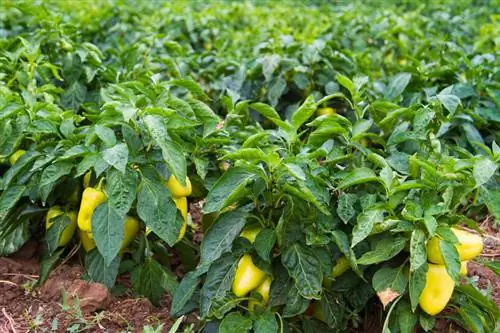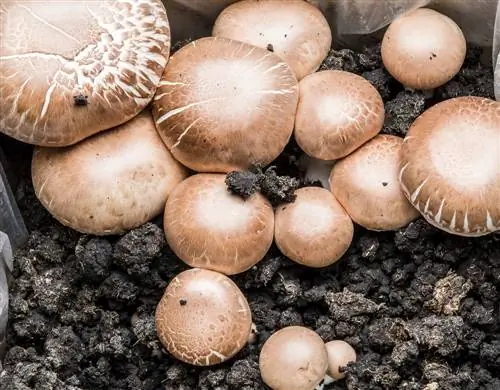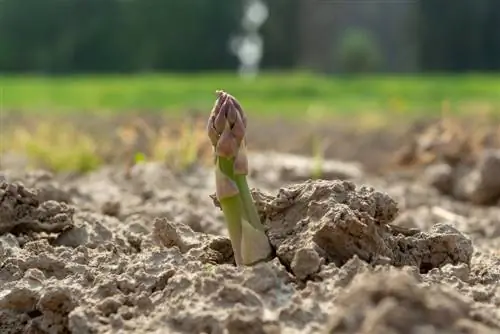- Author admin leonars@hobbygardeners.com.
- Public 2023-12-16 16:46.
- Last modified 2025-06-01 06:02.
Many hobby gardeners don't have the time to grow vegetables in their own garden. For them, Jerusalem artichoke is the ideal root vegetable. The sweet potato can be planted almost anywhere, requires little attention and produces a bountiful harvest.

How to grow Jerusalem artichokes in the garden?
To grow Jerusalem artichokes in the garden, you should loosen the soil deeply and enrich it with compost; if the soil is dense, add sand. Plant tubers with at least two eyes up to 15cm deep, 40cm apart. Mound the plants once they are 20-30 cm high and water them regularly without causing waterlogging.
The right location
Jerusalem artichoke places little demands on the location. A sunny to partially shaded location, a loose, nutritious soil - that's actually all the plant needs.
How to prepare the soil
The cultivation of Jerusalem artichoke is not dissimilar to that of potatoes. The soil should be thoroughly loosened beforehand. Stones and thickenings are removed. Then the tubers can form undisturbed.
It is important that the soil is permeable to water. The sweet potato cannot tolerate waterlogging at all. Otherwise it will rot in the ground.
Jerusalem artichoke also thrives in nutrient-poor soils. However, in order to achieve a good harvest, it makes sense to enrich depleted soils with compost.
Very dense soils, such as clay soils, are loosened with sand or chopped tree cuttings.
Planting Tips
Jerusalem artichoke can be grown from seeds, but this complicated route is rarely taken. It is much easier to buy tubers from a specialist retailer or exchange them with a neighbor.
The tubers should have at least two eyes. They are placed up to 15 centimeters deep in the prepared soil. The distance between the plants should be at least 40 centimeters
The rows of plants are covered with soil, walked on and watered.
Caring for the Jerusalem artichoke
As soon as the plants are 20 to 30 centimeters high, they are piled up. Then more tubers form. This process should be repeated once or twice.
The sweet potato needs a lot of water, especially in midsummer. Water morning and evening, but avoid waterlogging.
Fertilizing is not necessary on well-prepared soil. If the soil is already a little exhausted, you can rake some mature compost between the rows. Under no circumstances should nitrogen-rich fertilizer be given. He would let the tubers rot.
Tips for a rich harvest
The formation of tubers can be stimulated not only by piling up the plants. Removing the flowers also ensures that the plant develops additional tubers.
The cultivation of Jerusalem artichokes in brief:
- Prepare the floor
- Lay out tubers
- Water regularly
- pile up plants
- Harvest regularly
Problems with cultivation
Topinambur reproduces not only through seeds, but primarily through the tubers. If even a small tuber is overlooked when harvesting, a new plant will form there. To prevent uncontrolled reproduction, harvest regularly or a root barrier must be placed around the beds.
Tips & Tricks
Grow Jerusalem artichokes directly on the fence or plant them in unsightly corners in the garden. The sweet potato grows up to four meters high, develops beautiful yellow or reddish flowers and grows so compactly that it forms an opaque privacy screen.






